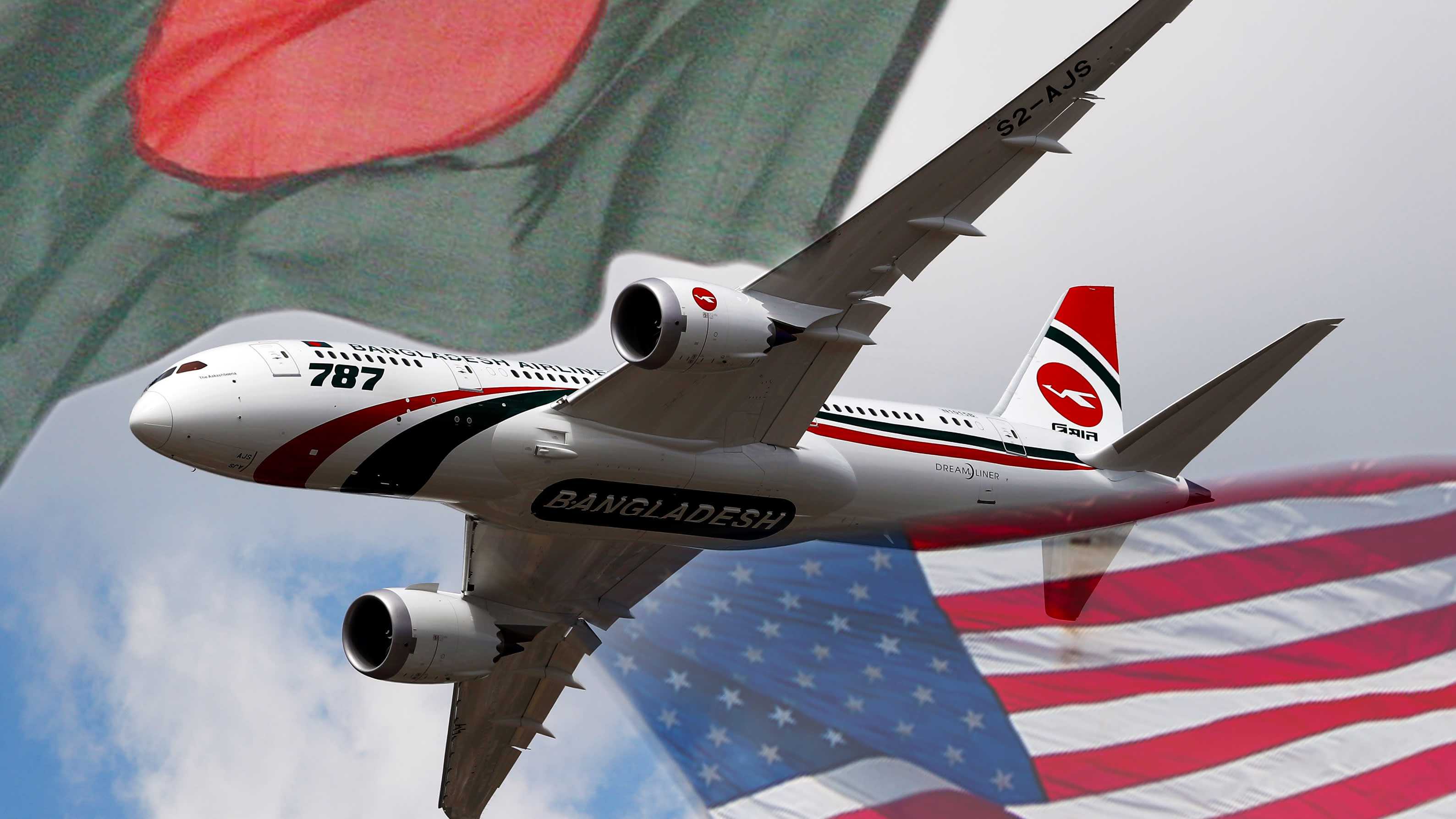US rush to Bangladesh revs up economic race with China

Image collected
The U.S. has ratcheted up financial diplomacy with Bangladesh, holding its first high-level dialogue practically and signing an open sky agreement in Dhaka as part of Washington's blueprint to challenge China's existence in the region.
Regardless of the ongoing presidential campaign, the U.S. is rushing to counter China's growing clout in South Asia, with its Indo-Pacific strategy regarded as a key pillar of foreign policy, regardless of who's in the White House.
The dialogue happened nearly on Sept. 30, in which Keith Krach, U.S. undersecretary of state for financial growth, energy and the surroundings, agreed to ask American companies to invest in Bangladesh's energy, IT, pharmaceutical and agriculture sectors.
The virtual dialogue coincided with the inking of an air service agreement in Dhaka on a single day, which paves just how for direct flights between Bangladesh and the U.S. under Washington's Open Skies policy that arrived to force on Wednesday.
The aviation pact will "further expand our strong financial and commercial partnership, promote people-to-people ties, and create new opportunities for airlines, travel agents and customers," the U.S. Department of State said in a statement.
The U.S. is home to around 500,000 Bangladeshis. The accord can help Bangladesh's national flag carrier Biman revive its Dhaka-New York route, that was suspended in 2006 on commercial grounds.
"We're getting renewed [U.S.] attention as a result of our monetary size," Salman F. Rahman, private industry and investment adviser to Bangladesh's prime minister, told Nikkei Asia in a recently available interview. "Bangladesh is now a major economy."
The Asian Development Bank has projected Bangladesh's monetary growth to attain 5.2% this season, while most other Asian economies have contracted.
Both countries are suffering from closer relations before few years, driven by monetary and defense cooperation. The U.S. Department of Defense has already recognized Bangladesh as an "emerging" partner in the Indo-Pacific alliance, and both countries opened discusses sales of American military gear this past year.
However, analysts see Dhaka's relationship with Washington as a work happening, due to its close ties to Beijing. Bangladesh recently gave a $250 million international airport construction contract to China, which responded by removing tariffs on 97% of Bangladeshi products.
"Bangladesh has demonstrated pragmatism in charting its foreign policy course," Delwar Hossain, a professor of international relations at Dhaka University, told Nikkei. He added, however, that it might be discomfiting for China to see Bangladesh-U.S. relations getting warmer, while Washington chafes at the Dhaka-Beijing romance.
"[But] neither side really wants to leave Bangladesh," Hossain said. Part of the reason, he explained, is that Bangladesh is the only remaining country in South Asia that may offer significant demand for both American and Chinese exports weighed against the tiny island nations of Sri Lanka and the Maldives. India and Pakistan are already firmly allied to the U.S. and China, respectively.
The U.S. represents the greatest export market for Bangladeshi products, with a $7 billion trade surplus favoring Dhaka. On the other hand, Bangladesh's trade deficit with China -- its largest way to obtain imports -- totaled $12 billion this past year. Beijing also supplies Dhaka with over 70% of its imported arms.
Rahman, who led the Bangladesh side in the recent consultations with the U.S., dismissed the notion that the aviation deal would sour "excellent" relations with China. "Our business environment is bettering [and] we're investing in infrastructure," Rahman said.
Dhaka-Beijing economic cooperation has deepened since Chinese President Xi Jinping's visit to Bangladesh in 2016, when he committed a lot more than $20 billion in loans to 27 projects under his Belt and Road Initiative.
Source: https://asia.nikkei.com
Previous Story
- 90pc business software in Bangladesh is pirated: US...
- Salman: Economic diplomacy to keep with major global...
- US-Bangladesh Economic Growth meeting on Wednesday
- USA straight down 31.78% in cotton trouser import...
- Google to block search recommendations to avoid misinformation...
- Two plenty of Bangladesh origin drugs recalled in...
- USA keeps India on ‘do not travel’ advisory...
- RMG export to US drops by 18.54pc in...